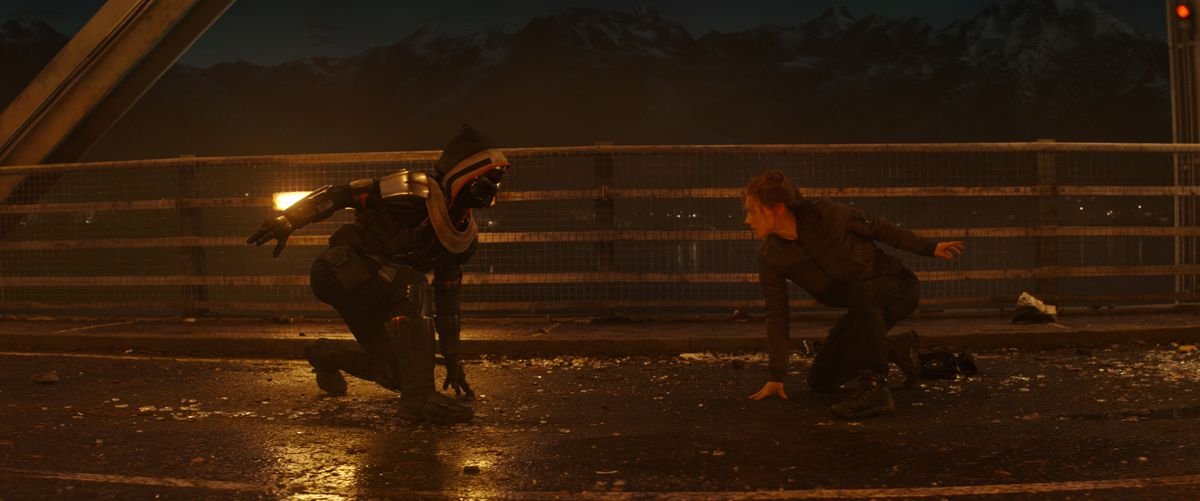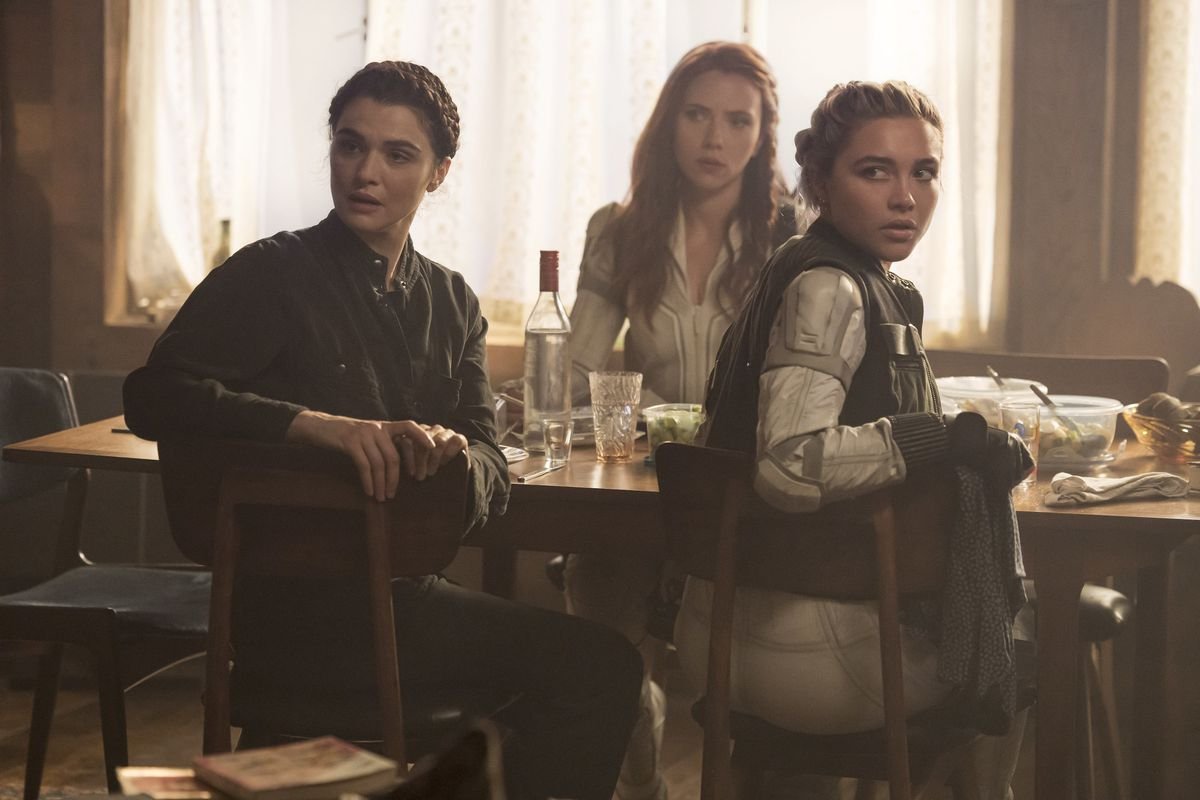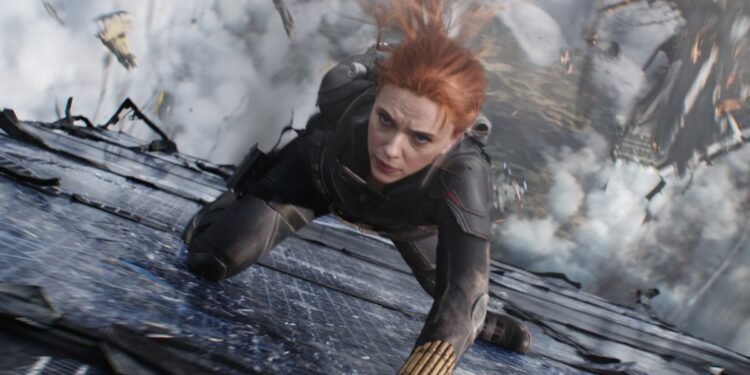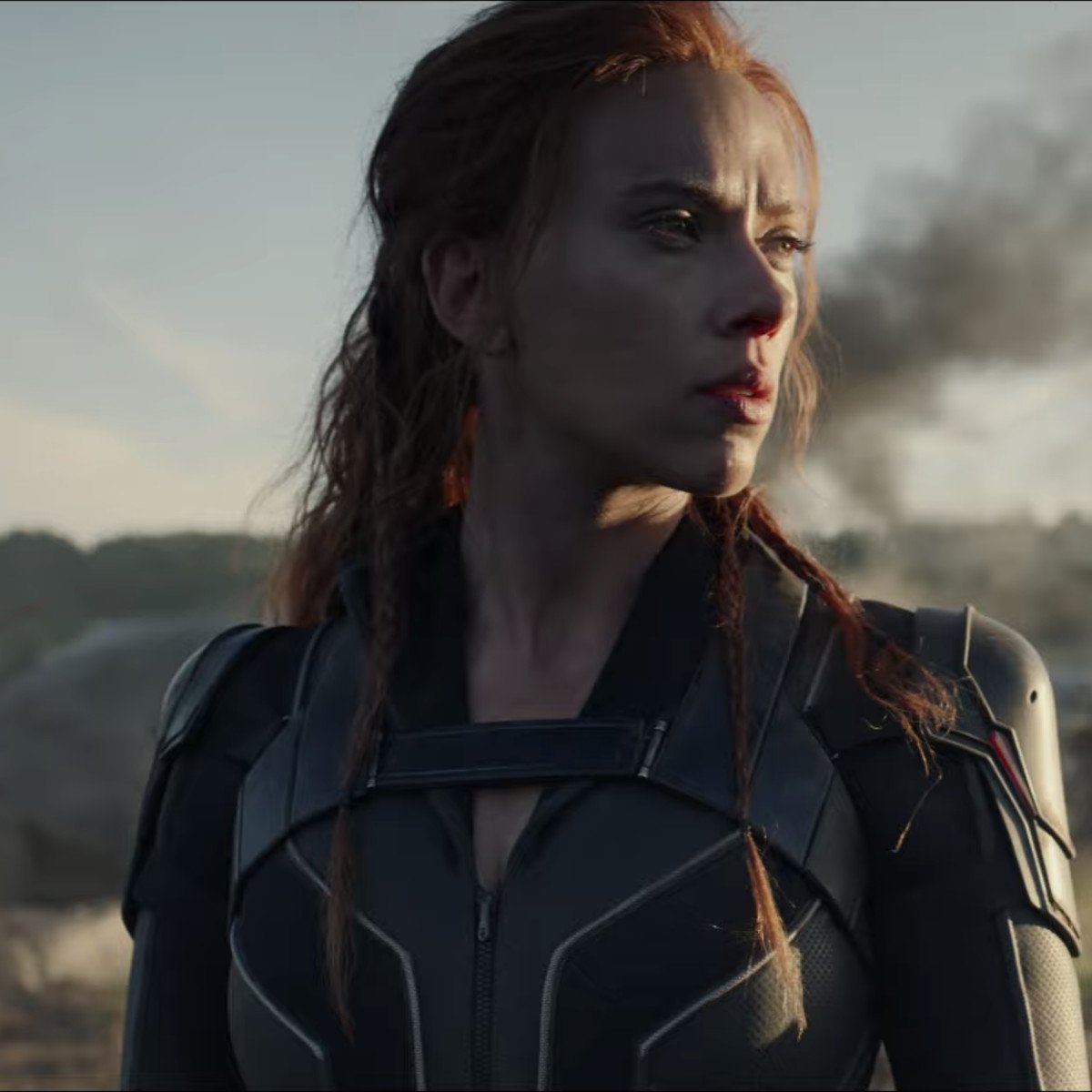Black Widow mostly feels like an apology. It arrives as the 24th film in the Marvel Cinematic Universe, two years (one of them a pandemic mulligan) after the 22nd film, Avengers: Endgame, featured an emotional scene that in no uncertain terms killed off Black Widow’s main character, Natasha Romanoff. Black Widow had been a consistent presence in the MCU since 2010’s Iron Man 2, and she was one of the key connective figures that helped all of these movies actually feel like a universe. She also seemed to be one of the only women of consequence in the entire franchise. And after coming and going, she’s only getting her own stand-alone movie now, which makes Black Widow feel like an afterthought. It’s only the second MCU film to star a female character, and that character isn’t even alive to take us somewhere new.
Instead, Black Widow takes us back to 2016, where director Cate Shortland and writers Eric Pearson, Jac Schaeffer, and Ned Benson spin a tale about what Natasha (Scarlett Johansson) was up to in the considerable gap between Captain America: Civil War and Avengers: Infinity War. There’s no real reason given for why this period is significant. Natasha’s present-day fate isn’t acknowledged until a post-credits scene. The film’s prologue is a flashback to 1995 Ohio, introducing new characters the audience will spend the movie getting to know. Mostly, it’s a period in the character’s history where she’s isolated and on the run because she sided with Cap in Civil War, but she’s also famous as an Avenger. It’s a moment in time where none of Natasha’s many lives seem to be working out for her, so she has to be the person she’s least comfortable with: herself.
Thus the film’s prologue, which introduces a brief period of bliss in young Natasha’s life. After her traumatic childhood being trained in the KGB’s Red Room program (as divulged in Avengers: Age of Ultron), Natasha got the chance to role-play a nice American family life with her spy “parents” Alexei (David Harbour) and Melina (Rachel Weisz) and little “sister” Yelena (played in adulthood by Florence Pugh). Natasha will reluctantly seek out this fake family when she discovers that the seemingly defunct Red Room program that turned her into a Black Widow is not only still around and still turning abducted young women into ruthless killers, it’s more horrifying than before — now it’s using chemical mind control on its subjects. Natasha, with Yelena’s help, makes it her mission to find this new Red Room and shut it down.
The stakes couldn’t be clearer, and for the first two-thirds, Black Widow has a focus that’s refreshing in the MCU, allowing it a sense of style and fun that’s genuinely enjoyable once you get over the strangeness of the film’s place in MCU continuity. Almost immediately, Natasha is hunted by the mysterious Taskmaster, a cyborg-looking super-soldier who can mimic every Avenger’s fighting style. Effectively, she’s the Terminator. Taskmaster brings a certain level of oh-shit urgency to fights, which are ambitious but a little messy, either ending too quickly or edited too frenetically for the complex choreography to have maximum impact.

Image: Marvel Studios
On the character side of things, the Black Widow family reunion is a genuinely surprising source of comedy, as a maladjusted quartet of trained killers come together simply because the sham family they played decades ago was also the only real human connection any of them had. Black Widow is extremely close to Bourne movie-style action, but it’s just as close to being a moving story about the burden of family you don’t choose but nonetheless feel bound to.
Unfortunately, the reason neither of these twin aspects fully lands comes down to the third act, which feels like it’s from a different film altogether. Marvel movies often get subsumed by their third acts, where they ditch all the fun and flavor that make them intriguing in lieu of a series of big, loud CG explosions. Black Widow’s take on this is serviceable — it’s bright and legible, with a few moments that look pretty cool — but it’s such a departure from the first two-thirds of the film that it’s hard not to resent it. The makers of MCU movies clearly want the films to be worthy of attention on their own merits, and not just in comparison to other MCU movies — Black Widow wouldn’t work so hard to be a Bourne-esque thriller if that weren’t the case — but they can’t seem to shake or even rethink the big, required Marvel finale.
In some small ways, Black Widow is the most bizarre film in the entire Marvel Cinematic Universe. It’s the latest installment in an interconnected 14-year opus designed to reward audiences’ attention, so it’s beyond strange that this latest MCU venture plays so glibly with the events of the previous one, and acts as if fans didn’t just see Natasha Romanoff, the Black Widow, die.

Photo: Jay Maidment/Marvel Studios
While Black Widow’s director and writers try valiantly to make the film a fitting swan song for Natasha and an impressive action vehicle for Johansson, tying up the Avenger’s disparate character beats across seven other movies in an action film that out-fights her male peers, it’s impossible to shake the feeling that it’s circling around a cul-de-sac. There’s no future for this character, and what’s presented here isn’t strong enough to give viewers confidence that other possible Black Widow flashback movies would be worth the trouble. Black Widow joins the major wave of current superhero stories about legacy heroes passing their mantles to the younger generation: The post-credits sequence openly sets up Yelena’s next appearance as Black Widow’s successor. But with that hollow apology for disposing of Natasha’s character still ringing throughout the movie, that setup sounds more self-serving than promising.
This is the downside of the Marvel Cinematic Universe experiment: Films under its banner can bask in the glow-up of its many successes, but dance too close to its failures, and the residual shame can sink what could’ve been an easy win. If only Marvel had gotten it together enough to make and release Black Widow in the year where it’s set.
Black Widow opens in theaters and on Disney Plus’ Premier Access on July 9.
















































